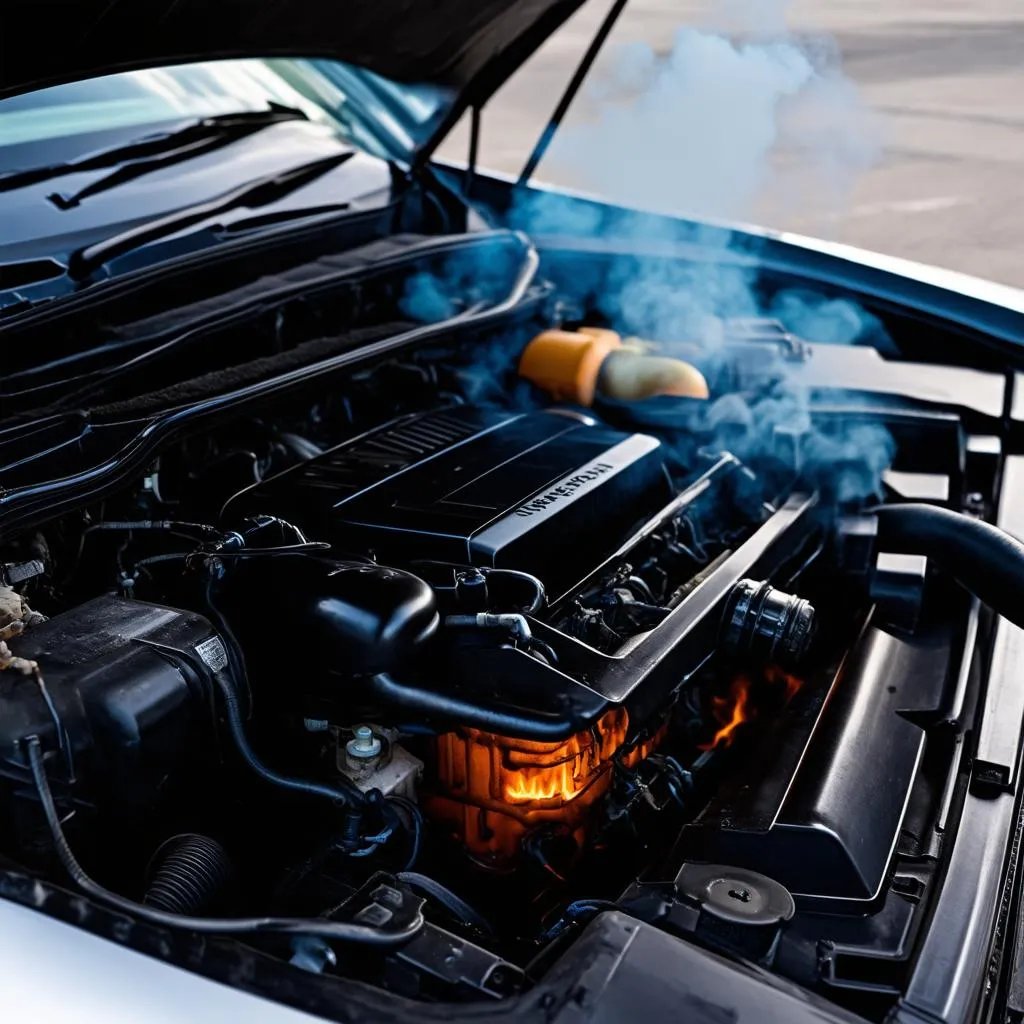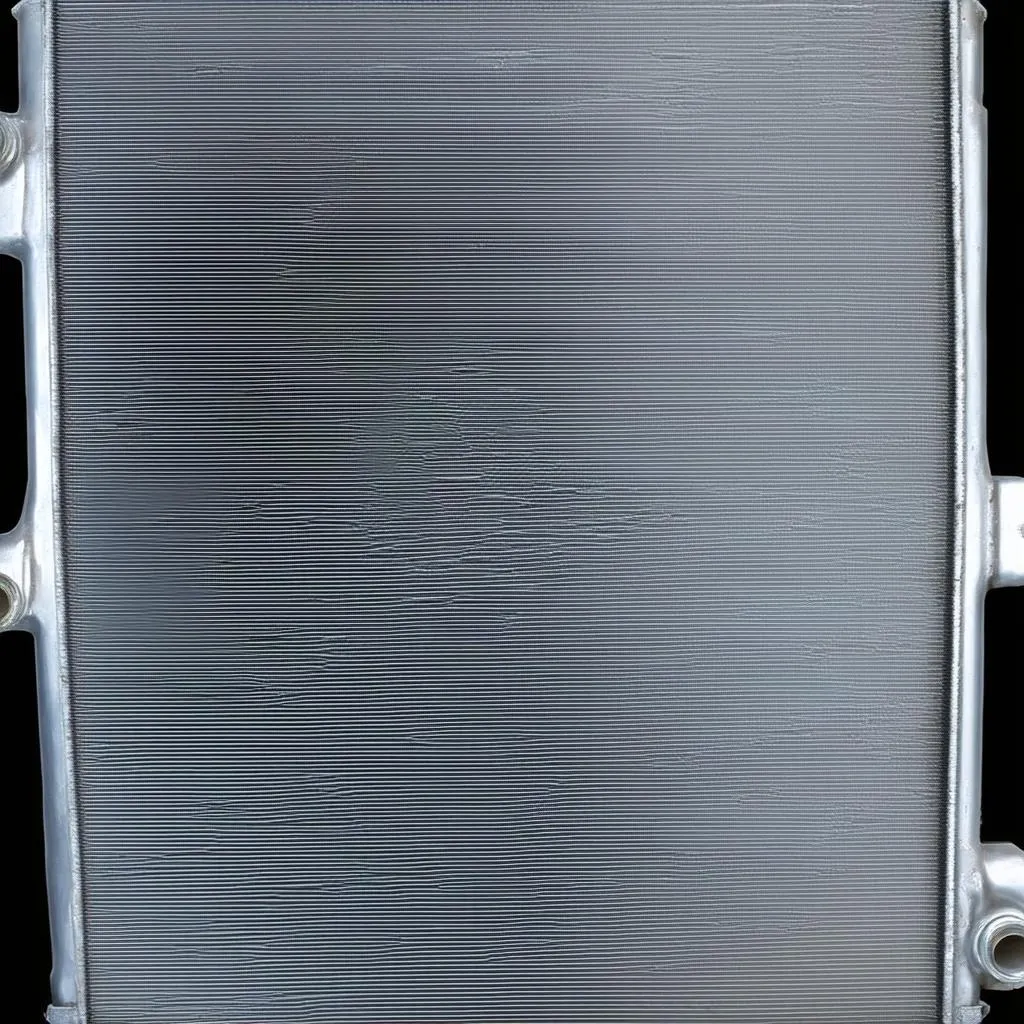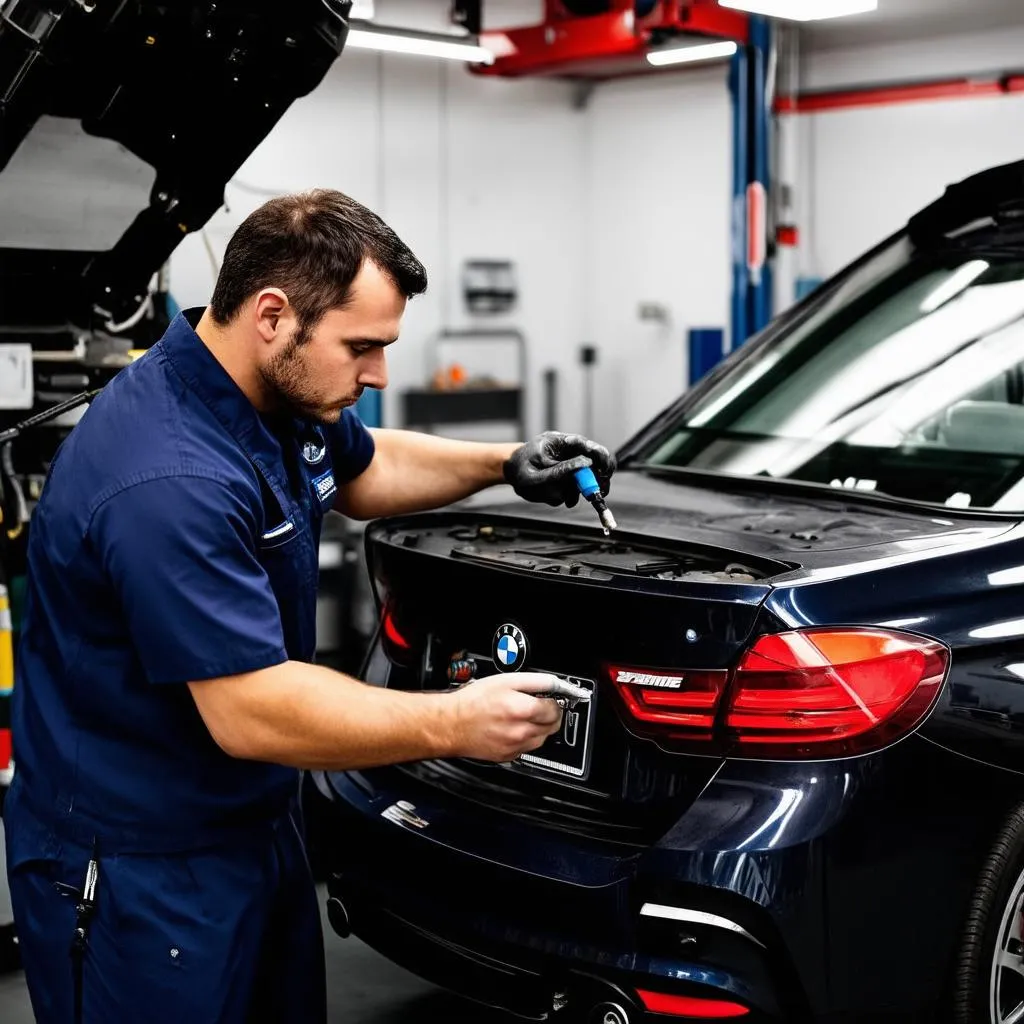BMW Engine Overheating Light: What Does it Mean and What Should You Do?
“Oh no, not the dreaded yellow engine overheating light!” If you’re a BMW owner, you’ve probably uttered these words with a sinking feeling in your gut. One minute you’re cruising down Highway 1, the California sun warming your face, the next you’re pulled over, engine steaming, wondering what went wrong. Don’t panic! Understanding what triggers your BMW’s engine overheating light and knowing the right steps to take can save you from a costly repair and a ruined road trip.
Decoding the Dreaded Light: What Does it Mean?
Whether you drive a sporty BMW M3 in Germany or a luxurious BMW X5 in the bustling streets of New York City, the engine overheating light is a universal symbol of trouble. It indicates that your engine’s temperature has exceeded safe operating limits. Ignoring this warning can lead to severe engine damage, so it’s crucial to address the issue immediately.
Why is My BMW Engine Overheating? Let’s Investigate!
Several culprits can cause your BMW’s engine to overheat. Let’s hear what Dr. Heinrich Schmidt, a renowned automotive engineer based in Stuttgart, has to say, “Modern BMWs are complex machines with intricate cooling systems. A minor fault can snowball into a major engine problem if ignored.” Here are some common reasons for overheating:
- Coolant Leak: Imagine a tiny leak in your car’s cooling system, similar to a slow drip from a faucet. Over time, this seemingly small issue can drain your engine’s coolant, leading to overheating.
- Faulty Thermostat: Think of the thermostat in your home; it regulates the temperature. Similarly, your car’s thermostat controls the flow of coolant to the engine. A malfunctioning thermostat can disrupt this process, causing overheating.
- Failing Water Pump: The water pump is the heart of your BMW’s cooling system, circulating coolant throughout the engine. A worn-out water pump can’t circulate coolant effectively, resulting in overheating.
- Clogged Radiator: Picture this: You’re driving through dusty Texas backroads, and your car’s radiator gets clogged with dirt and debris. This buildup restricts airflow, hindering the radiator’s ability to cool the engine.
- Malfunctioning Fan Clutch: The fan clutch engages the engine fan when extra cooling is needed. A faulty fan clutch can prevent the fan from engaging when necessary, leading to overheating.
BMW Engine Overheating: What Should You Do?
- Pull Over Safely: As soon as you notice the engine overheating light, safely pull over to the side of the road. Continuing to drive with an overheating engine can cause irreversible damage.
- Turn Off the Engine: Turning off the engine allows it to cool down and prevents further overheating.
- Let it Cool Down: It’s crucial to let the engine cool down completely before attempting to diagnose the problem. This can take anywhere from 30 minutes to an hour.
- Check the Coolant Level: Once the engine has cooled, carefully open the coolant reservoir (refer to your owner’s manual for its location). If the coolant level is low, this could be the source of the problem. However, never open the reservoir while the engine is hot, as the pressurized coolant can cause severe burns.
- Seek Professional Help: Unless you’re a seasoned mechanic, it’s best to have a professional diagnose and repair the issue. Overheating can be caused by various factors, and attempting to fix it yourself without the proper knowledge can worsen the problem.
 Car Engine Overheating
Car Engine Overheating
Don’t Ignore the Warning Signs!
Besides the engine overheating light, here are a few other signs that your BMW’s cooling system might be in distress:
- Temperature Gauge Spiking: If your temperature gauge consistently reads high or fluctuates erratically, it’s a red flag.
- Steam From Under the Hood: Seeing steam billowing from under the hood is a clear sign of overheating.
- Sweet Smell Inside the Car: A sweet, syrupy smell inside your car can indicate a coolant leak.
- Engine Knocking or Pinging: Overheating can cause engine knocking or pinging sounds due to premature detonation of fuel.
Preventative Measures for a Cool Ride
Prevention is always better than cure. Here are some tips to prevent your BMW’s engine from overheating:
- Regular Maintenance: Adhering to your BMW’s recommended maintenance schedule, including regular coolant flushes and thermostat inspections, can prevent many cooling system issues.
- Check for Leaks: Regularly inspect your car for coolant leaks, especially around the hoses, radiator, and water pump.
- Clean the Radiator: Ensure your radiator is free from dirt and debris, especially if you frequently drive on dusty or unpaved roads.
 Clean Car Radiator
Clean Car Radiator
FAQs: BMW Engine Overheating
Q: Can I add water to my BMW’s coolant system if I suspect a leak?
A: While it’s safe to temporarily top up your coolant with water in an emergency, it’s crucial to use the correct coolant type specified in your owner’s manual. Using the wrong coolant can damage your BMW’s cooling system.
Q: How often should I get my BMW’s coolant flushed?
A: BMW recommends a coolant flush every 2 to 3 years, or as specified in your owner’s manual.
Q: Can a faulty radiator cap cause overheating?
A: Yes, a faulty radiator cap can’t maintain the correct pressure in the cooling system, leading to coolant boiling over and overheating.
Need More Help? We’re Here for You!
Experiencing car troubles can be stressful, especially when it involves something as crucial as your engine’s cooling system. Remember, ignoring the warning signs can lead to costly repairs down the road. If you’re facing any issues with your BMW’s engine overheating light or any other diagnostics-related problems, don’t hesitate to reach out to our team of experts. We’re available 24/7 to provide support and guidance. Contact us on Whatsapp at +84767531508 and let us help you get back on the road safely.
Keep Your BMW Cool and Your Driving Experience Smooth
By understanding the common causes of engine overheating, recognizing the warning signs, and taking preventative measures, you can ensure a smooth and enjoyable driving experience in your BMW. Remember, a little care and attention can go a long way in keeping your engine running cool and preventing those dreaded roadside emergencies.
Looking for more helpful tips and insights on maintaining your BMW? Check out these articles:
- BMW E90 Supercharger Kit: Boost Your Performance
- P13C9 BMW Code: Understanding and Resolving the Issue
- BMW 2D06: Deciphering the Code and Finding Solutions
 BMW Mechanic Repairing Car
BMW Mechanic Repairing Car
